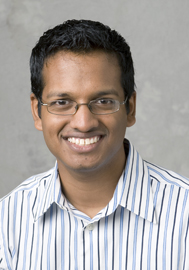
WEST LAFAYETTE — Applications are open for Purdue University’s new 100% online Master of Science in Artificial Intelligence degree, which features two majors: one for people who build AI systems and one for people who use them.
Purdue’s interdisciplinary AI master’s degree is designed to meet the needs of two working professionals: AI builders and AI translators. AI builders are scientists and technologists who need robust training in machine learning, statistical methods, deep learning, and data science to build and implement AI infrastructure. AI translators are business leaders and policymakers who must make informed decisions regarding artificial intelligence and lead teams to adopt, incorporate, and employ AI in their organizations. Among their roles are determining what results from AI systems mean and how those results should factor into business decisions and actions.
In a survey by information technology consulting firm Deloitte, more than two-thirds of executives reported that their firms had an AI skills gap. Job-tracking site Glassdoor reports a worldwide shortage of trained personnel in the field and a pressing need to train new employees and re-skill or upskill existing employees.
“AI is inherently interdisciplinary, with applications across domains,” said Dimitrios Peroulis, senior vice president for Purdue University Online. “We have designed our online AI master’s program to leverage Purdue’s interdisciplinary strengths and intentionally built a program that meets the needs of learners with either a highly technical background or for those who do not have a technical background.”
Learners in both tracks will benefit from coursework in the foundations of artificial intelligence, ethics, and policy and social implications of artificial intelligence. AI builders take additional classes in machine learning and data science. AI translators have further courses in applications of AI in the business, nonprofit and public sectors along with data management, data analysis and communication.

“Purdue’s program is unique in recognizing the importance of preparing leaders, business professionals, and administrators to work in collaboration with programmers and technical experts to harness the power of AI,” said Cherie Maestas, professor and head of Purdue’s Department of Political Science and one of the faculty members involved in developing the new AI master’s program. “AI is rapidly transforming everyday practices in the workplace. Leaders in all areas need to understand the fundamentals of AI technologies and their applications to utilize them for bold, innovative solutions.”
All students complete a capstone course, allowing them to apply their learning to a project that may be useful in their workplace immediately. Students also have a wide range of interdisciplinary electives to choose from in rounding out their curriculum, allowing them to customize their degrees to their own needs and interests and their employers’ needs, and garner valuable professional skills, for example in leadership, change management and project management.
The online courses are developed and taught by a diverse, campuswide collection of the same internationally known faculty researchers who teach on Purdue’s flagship campus. Because AI is a rapidly evolving field, the program takes a future focus by incorporating the most current research to provide up-to-date information to students. Purdue has been ranked among the top 10 Most Innovative Schools six years running and is a top 10 public university in the U.S., according to U.S. News & World Report and QS University Rankings.

“We have a long history at Purdue of delivering online options that are just as high quality as our top-ranked on-campus programs, and we’re excited to bring that passion and expertise to such an important domain,” said Milind Kulkarni, professor, and head of Purdue’s Elmore Family School of Electrical and Computer Engineering, who has been involved in developing the new AI master’s program. “Whether you’re someone with a technical background who wants to learn about modern AI techniques and applications or someone who needs to understand how your company or organization can best take advantage of cutting-edge AI technologies, our program is going to have something for you.”
A total of 30 credit hours are required to complete Purdue’s online Master of Science in Artificial Intelligence. Students who average six credit hours per semester can graduate in a year and a half. Summer courses are available to expedite time to completion.
The AI master’s degree is among numerous interdisciplinary initiatives designed to address research in and advancement of AI technologies, including the Purdue Computes initiative and Purdue’s Institute for Physical AI.
“Purdue has extensive strengths in the field of AI research, and we decided to apply these strengths to develop a new online master’s in AI to meet workforce needs in Indiana and beyond,” Peroulis said. “By offering an online master’s in AI, Purdue can cater to a broader audience, including working professionals in the U.S. and international students, addressing the growing demand for AI skills.”
For more information on Purdue’s fully online Master of Science in Artificial Intelligence and to apply, visit the program webpage. There is no application fee for this program.
About Purdue University
Purdue University is a public research institution demonstrating excellence at scale. Ranked among top 10 public universities and with two colleges in the top four in the United States, Purdue discovers and disseminates knowledge with a quality and at a scale second to none. Over 105,000 students study at Purdue across modalities and locations, including nearly 50,000 in person on the West Lafayette campus. Committed to affordability and accessibility, Purdue’s main campus has frozen tuition for 13 years. See how Purdue never stops in the persistent pursuit of the next giant leap — including its first comprehensive urban campus in Indianapolis, the new Mitchell E. Daniels, Jr. School of Business, and Purdue Computes — at https://www.purdue.edu/president/strategic-initiatives.
Information: Greg Kline
Media contact: Brian Huchel, bhuchel@purdue.eduSources: Dimitrios Peroulis, dperouli@purdue.edu, Milind Kulkarni, milind@purdue.edu, Cherie Maestas, cmaestas@purdue.edu



